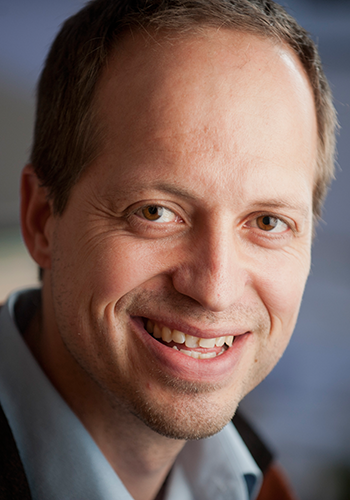Reuben Harris recognized as one of the nation’s top biomedical scientists by the Howard Hughes Medical Institute.

HHMI selected 26 scientists based on their individual scientific excellence that represent 19 institutions across the United States out of a pool of 894 applicants. The HHMI initiative represents an investment in basic biomedical research of $153 million over the next five years. HHMI encourages its investigators to push their research fields into new areas of inquiry and gives investigators the freedom to explore and, if necessary, to change direction in their research. Moreover, they have support to follow their ideas through to fruition — even if that process takes many years.
Harris studies the physiological and pathological functions of a family of DNA-mutating enzymes known as “APOBECs,” and his work illuminates the role that these DNA-mutating enzymes play in boosting the effectiveness of immune responses, as well as spurring the growth of cancer cells. The Harris lab will continue to pursue answers to important questions in these areas.
HHMI will provide Harris a full salary, benefits and a research budget over his initial five-year appointment. The Institute will also cover other expenses, including research space and the purchase of critical equipment. Harris’ appointment may be renewed for additional five-year terms, each contingent on a successful scientific review.
“The most important factor in meaningful science is flexibility. I’m thrilled to have HHMI support because it will enable my lab to push current frontiers and explore new paths that are not yet visible,” says Harris. “For instance, we have discovered that at least one of these enzymes promotes tumor evolution, and we are extremely excited about dissecting the underlying mechanism and leveraging this knowledge to improve cancer therapies.”
HHMI investigators are widely recognized for their creativity and research accomplishments. There are currently 182 HHMI investigators who are members of the National Academy of Sciences and 17 Nobel laureates within the investigator community.